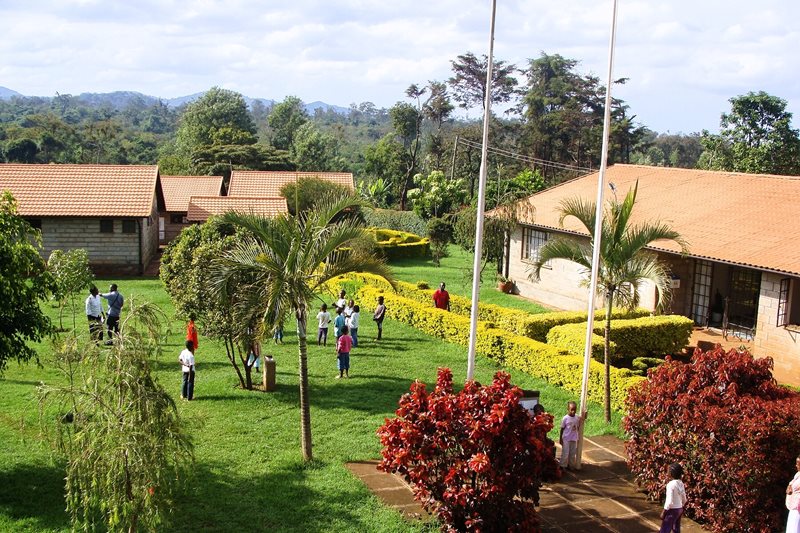Access to land and gender inequality are among the region’s problems
.jpg?width=800)
Children planting seeds in the village farm (photo: SOS archives).
Women in Meru tend to marry young and go on to have large families. Around 20 per cent of women have their first child, and 40 per cent of women are married, before they are 18 years old. Domestic violence as well as corporal punishment remain very common in the region. A 2008 survey conducted by the Kenya National Bureau of Statistics showed that around 82 per cent of children in the region experience psychological or physical punishment in the home. In the same survey, 68 per cent of women stated that they believed it justified for a husband to beat his wife, for example if she goes out without telling him, refuses to have sex or burns the food. Around 25 per cent of households have to travel one hour or more to collect water, and in 68.5 per cent of cases, this is the woman’s job.
Primary school attendance, though improved in recent years, is still very low in Meru North, at just 56 per cent. Secondary school attendance is even lower at 15 per cent. Adult literacy rates vary from 71 per cent in the North, to 87 per cent in the South.
Insufficient health services means thousands of children are vulnerable
Only 53 per cent of children receive full vaccination (polio, tetanus, tuberculosis, measles, etc.) before the age of 12 months. Malnutrition continues to be a big problem in the region, with over 20 per cent of children underweight and over 30 per cent showing signs of stunting.
The HIV/AIDS epidemic has also severely affected the region and there is a great number of children who have been orphaned or are vulnerable, meaning that either their mother or father has died, or there is a chronically ill adult or parent in the household. These children are at great risk of being neglected or exploited if their parents can no longer look after them. In many cases, there is not enough social and material support available to them. In Meru North, one in eleven children is an orphan, and a total of 19 per cent of children are vulnerable. In the South, six per cent of children are orphans and two per cent are vulnerable.
SOS Children’s Village provides care for children in the region who can no longer live with their parents or relatives. We ensure their safe and healthy upbringing, as well as their education, and we give each child a loving home.
The HIV/AIDS epidemic has also severely affected the region and there is a great number of children who have been orphaned or are vulnerable, meaning that either their mother or father has died, or there is a chronically ill adult or parent in the household. These children are at great risk of being neglected or exploited if their parents can no longer look after them. In many cases, there is not enough social and material support available to them. In Meru North, one in eleven children is an orphan, and a total of 19 per cent of children are vulnerable. In the South, six per cent of children are orphans and two per cent are vulnerable.
SOS Children’s Village provides care for children in the region who can no longer live with their parents or relatives. We ensure their safe and healthy upbringing, as well as their education, and we give each child a loving home.
What we do in Meru

The children in our care grow up in a safe and supportive family home (photo: SOS archives).
The SOS Social Centre in Meru supports families in feeding, clothing and providing shelter for their children, as well as ensuring that the children attend school and make progress in their learning. The SOS Social Centre also provides health services, counselling and psychological support, as well as care and assistance for families affected by HIV/AIDS.
For children from the region who can no longer live with their parents, 13 SOS families can provide a loving home for up to 130 children. In each family, the children live with their brothers and sisters, affectionately cared for by their SOS mother.
The children attend the SOS Kindergarten together with children from the neighbourhood. This ensures that children from SOS families make friends and are integrated into the local community from a young age. The kindergarten also includes one class for children with special needs, where they are taught according to the Montessori Method of teaching.